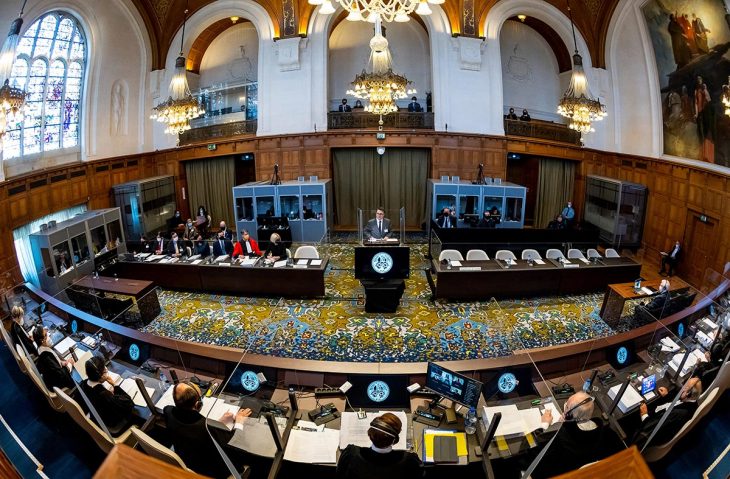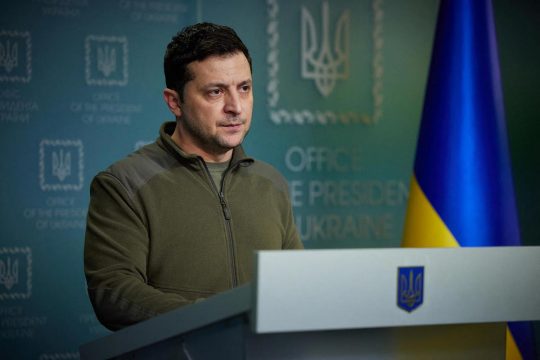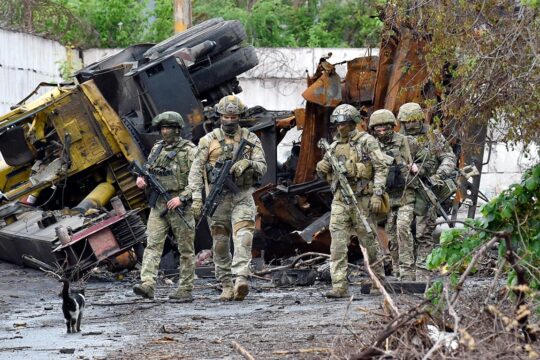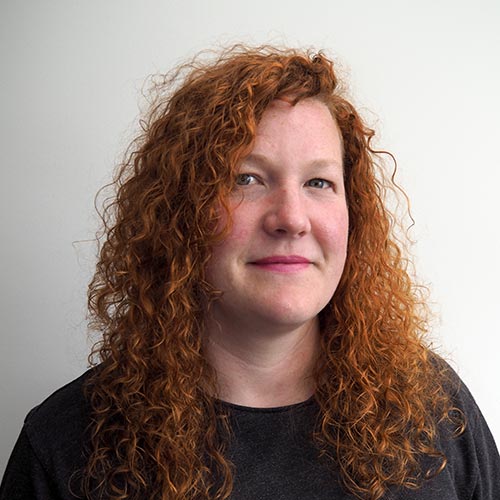"My message to Russia is this: let us settle our disputes like civilized nations. Lay down your arms and present your evidence," Ukraine’s representative, Anton Korynevych, told the International Court of Justice (ICJ) on Monday in The Hague. Directly next to him, the Russian Federation’s table sat empty. Via its ambassador to the Netherlands, Russia had told the court over the weekend that it “had decided not to participate in the oral proceedings.”
Ukraine is confronted with an armed invasion by Russia since February 24. Two days after the attack it filed an application before the top UN court saying Moscow had violated the 1948 UN Convention on Genocide when it used the false pretext of genocide to invade its neighboring country. “Russia has reduced the genocide convention to confetti,” lawyer for Ukraine Jean-Marc Thouvenin said during Monday’s hearing.
Ukraine has taken an innovative approach, legal experts say, in using the Genocide Convention to ask the ICJ to weigh in. While the crime of aggression is forbidden by the UN Charter, neither Russia nor Ukraine have signed declarations giving the court jurisdiction, forcing Ukraine to find another route to The Hague-based court. The Convention, created in response to the horrors of the Holocaust, outlaws genocide and is signed by 152 countries, including both Russia and Ukraine. According to the Ukrainian legal team, Russia violated the treaty when President Vladimir Putin claimed the Russian invasion was an effort to stop Ukraine from committing genocide. According to Moscow, Kyiv’s government has been targeting Russian-speakers in eastern Ukraine since 2014. (The pair have an ongoing case over Russia’s incursions into those regions pending before the ICJ.)
In this emergency hearing before the ICJ, Ukraine is asking the court to issue several provisional measures, including ordering Russia to cease its invasion, avoid any action that might worsen the conflict, and provide regular updates to the court about its progress. Instead, Russia’s snubbed the emergency hearings.
Rebutting Russia’s genocide claim
The idea that Kyiv was committing genocide in eastern Ukraine was absurd, its lawyers said, pointing to investigations by the United Nations and the International Criminal Court (ICC) which have found no evidence of such atrocities. “It would be an understatement to say that Russia has provided no evidence for genocide in the course of this conflict,” another member of Ukraine’s legal team, David Zionts, said during his oral presentation.
Ukraine has welcomed the ICC investigation, announced by the ICC Prosecutor on February 28. Kyiv signed a special declaration to give that court jurisdiction in 2014, a needed step as Ukraine isn’t a party to the 1998 Rome Statute which created the court. "Ukraine was not targeting civilians,” lawyer Marney Cheek said during the ICJ hearing, arguing that it was impossible that an ICC investigation would not notice an ongoing genocide.
“We are engaging in lawfare, Russia is engaging in warfare,” Korynevych told the media. Speaking with him was Ukraine’s other official representative, called an “agent” in court parlance, Oksana Zolotaryova, the director of the International Law Department at the Ukrainian Ministry of Foreign Affairs. She’s been representing Ukraine in their ongoing legal battles with Russia at the court. The country has also filed a complaint with the European Court of Human Rights, which issued interim measures telling Russia to “refrain from military attacks against civilians and civilian objects” last week.
In her closing statement to the ICJ, Zolotaryova kept the focus on the real and tangible impact the war was having on her country. "My hometown of Kharkiv suffers for days from indiscriminate shelling, but heroically resists. Churches are ruined, hospitals are ruined, universities are ruined, civil infrastructure is ruined there. None of this can be considered a legitimate military target.” On March 8 in the morning, an Al Jazeera reporting team entered Kharkiv – Ukraine’s second largest city – and described the city as “absolutely devastated.”
A symbolic victory
As Ukraine is aware, Russia is unlikely to listen to any measures issued by the court. It hasn’t yielded to the measures issued by the ECHR. But Korynevych was undeterred. “They must listen to the court under international law," he told reporters after the hearing when the entire legal team for Ukraine gathered in the cold on the steps of the Peace Palace to answer questions from journalists, the first time the court had allowed such a press conference in over two years, due to the ongoing Covid-19 pandemic. As they spoke, Ukraine’s delegates could hear a few dozen protesters wrapped in Ukrainian flags chanting “No to Putin, No to war.”
The court said it will announce its decision on preliminary measures “in due course.” In December 2019, the ICJ had convened such preliminary hearing in a case where Myanmar is accused of genocide by the Gambia on behalf of the Organization of Islamic States. It took about five weeks before the court issued a decision. In urging the court to act quickly, Zolotaryova reminded the judges of what is at stake if the Russian invasion continues. “We don't know yet the true number of Ukrainians that Russia has murdered in the past eleven days. We can only guess how many more will be murdered in the next eleven days if this senseless aggression does not stop.”








